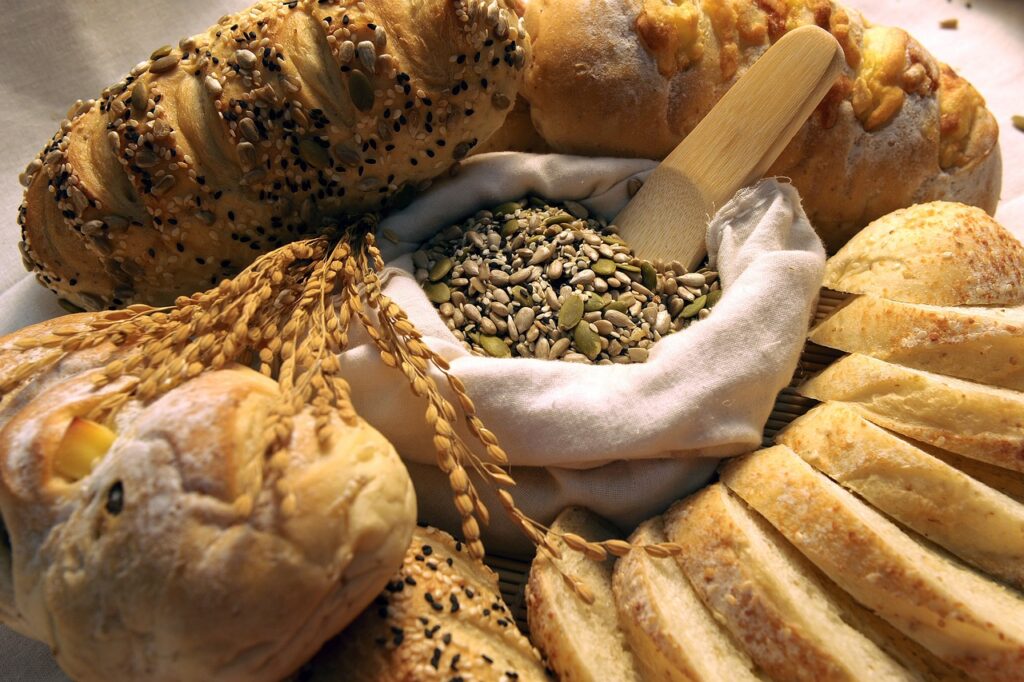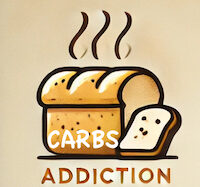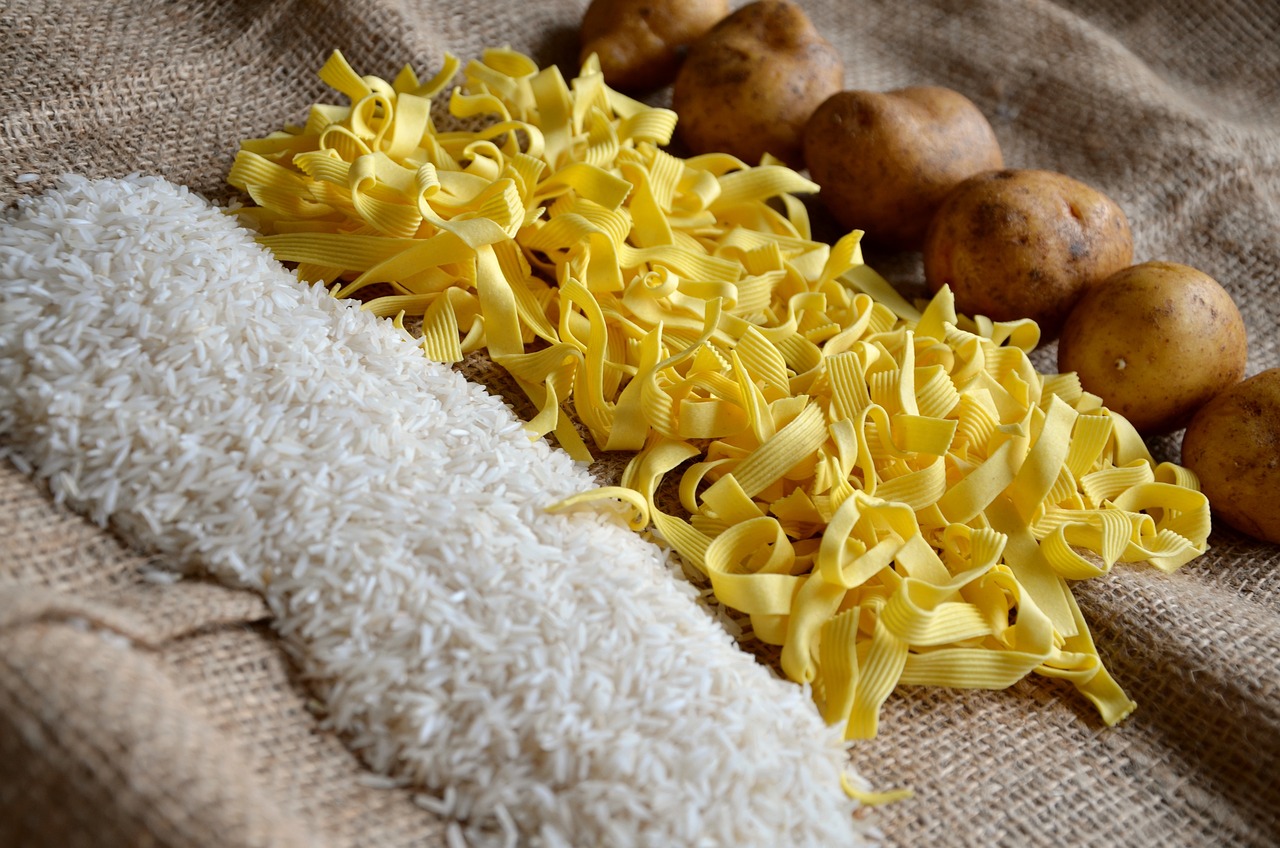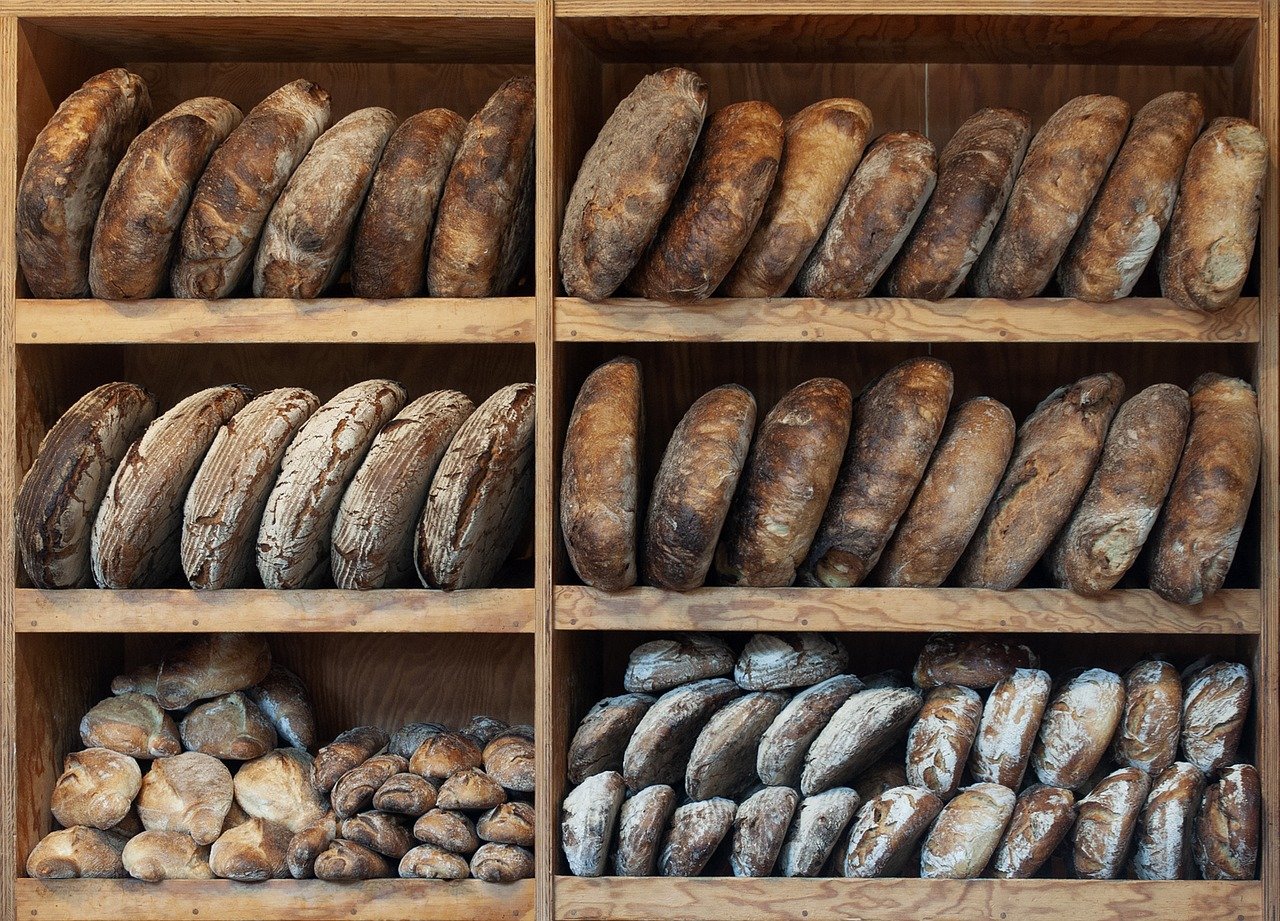Imagine a world without the comforting aroma of freshly baked bread wafting through your kitchen, or the satisfying bite of a perfectly cooked pasta twirling on your fork.
It’s a place void of the joy that a slice of pizza brings on a Friday night or the coziness a warm bowl of oatmeal provides on a chilly morning. Such a world might seem tasteless to many, and for good reason. Carbohydrates, often affectionately referred to as carbs, are much more than a dietary component; they are the stars of culinary traditions around the globe, uniting cultures through their irresistible flavors and versatile textures.
In this ode to carbs, we delve into the heart of why we love eating carbs so much. Beyond the obvious allure of their taste and texture lies a deeper connection to our heritage, emotions, and physiology. Carbs have been a staple in human diets for centuries, a testament to their vital role in sustaining life and fueling our bodies with energy and they are responsible for most carb cravings. They’re the backbone of countless comfort foods that nurture not just the body but the soul. Whether it’s the nostalgic pull of grandma’s homemade pie or the simple pleasure of a crispy baguette, carbs have a unique way of bringing comfort and joy that few other food groups can match. Join us as we celebrate these beloved nutrients and uncover the myriad reasons they continue to hold such a special place in our hearts.
The Science Behind Carbohydrates: Fueling Our Bodies

Carbohydrates are often misunderstood, with many people associating them solely with weight gain and unhealthy eating habits. However, the truth is that carbs play a crucial role in fueling our bodies and providing us with the energy we need to function optimally.
When we consume carbohydrates, our bodies break them down into glucose, which is then used as a primary source of energy. Glucose is transported through the bloodstream to our cells, where it is converted into adenosine triphosphate (ATP), the molecule responsible for storing and releasing energy.
Carbs come in two main forms: simple and complex. Simple carbs, such as those found in fruits and refined sugars, are quickly digested and provide a rapid burst of energy. On the other hand, complex carbs, like those found in whole grains and vegetables, take longer to digest and provide a more sustained release of energy.
In addition to being an important source of energy, carbohydrates also play a role in brain function. The brain relies heavily on glucose for fuel, so consuming an adequate amount of carbs is essential for maintaining cognitive function and mental clarity.
It’s important to note that not all carbohydrates are created equal. While it’s true that some carb-rich foods can contribute to weight gain if consumed in excess or paired with unhealthy fats or sugars, this doesn’t mean that all carbs are “bad.” In fact, many nutritious foods like fruits, vegetables, whole grains, and legumes are rich in carbohydrates while also providing essential vitamins, minerals, fiber, and antioxidants.
Carbs and Cultural Significance: A Global Culinary Connection
Carbohydrates have played a significant role in culinary traditions around the world for centuries. From pasta in Italy to rice in Asia and tortillas in Mexico, carbs have become deeply ingrained in the cultural fabric of societies across the globe.
One of the reasons why carbs hold such cultural significance is their ability to bring people together. Sharing a meal that features a carbohydrate-rich dish is a universal way of fostering connections and celebrating shared experiences. Whether it’s gathering around a table for a holiday feast or enjoying street food with friends, carbs often take center stage in these communal moments.
Furthermore, many traditional recipes passed down through generations are centered around carb-rich ingredients. These recipes not only provide nourishment but also serve as a link to our heritage and ancestors. They allow us to connect with our roots and preserve culinary traditions that have been cherished for centuries.
Exploring the Types of Carbs: From Grains to Vegetables

Carbohydrates come in various forms, each offering unique flavors, textures, and nutritional profiles. Let’s take a closer look at some of the different types of carbs:
Grains: Grains like wheat, rice, oats, and barley are staple foods in many cultures. They are versatile ingredients that can be used to create everything from bread and pasta to porridge and pilaf.
Vegetables: Many vegetables contain carbohydrates, although they are typically lower in carbs compared to grains. Examples include potatoes, sweet potatoes, corn, peas, and carrots.
Fruits: Fruits are nature’s sweet treats and provide both simple carbohydrates (in the form of natural sugars) as well as essential vitamins and minerals.
Legumes: Legumes such as beans, lentils, chickpeas, and peas are not only rich in carbohydrates but also high in protein and fiber, making them a nutritious addition to any diet.
By embracing the wide variety of carbs available to us, we can enjoy a diverse and balanced diet that provides us with the nutrients we need while satisfying our taste buds.
The Emotional Comfort of Carbs: How They Impact Our Mood

Carbohydrates have long been associated with comfort food, and for good reason. When we consume carbs, our bodies release serotonin, a neurotransmitter that helps regulate mood and promote feelings of happiness and well-being.
Have you ever noticed how a warm bowl of macaroni and cheese or a slice of chocolate cake can instantly lift your spirits? This is because these carb-rich foods trigger the release of serotonin in our brains, creating a sense of comfort and contentment.
In addition to their impact on mood, carbs also play a role in stress management. When we’re stressed, our bodies produce cortisol, a hormone that can increase appetite and cravings for high-carb foods. This is why many people turn to carbs during times of stress as a way to self-soothe and find temporary relief from emotional distress.
It’s important to strike a balance when it comes to using carbs for emotional comfort. While indulging in your favorite carb-rich comfort foods can be enjoyable and satisfying, it’s also essential to prioritize overall health by incorporating nutrient-dense carbs into your diet on a regular basis.
Carbs and Heritage: Traditional Recipes Passed Down Through Generations
One of the most beautiful aspects of carbohydrates is their ability to connect us with our heritage through traditional recipes that have been passed down through generations. These recipes often hold deep sentimental value as they evoke memories of loved ones and special occasions.
Whether it’s your grandmother’s secret bread recipe or your family’s treasured holiday dessert, these carb-centric dishes are a tangible link to your cultural roots. They allow you to honor the past while creating new memories and traditions with your own loved ones.
By preserving and celebrating these traditional recipes, we not only keep our heritage alive but also ensure that future generations can continue to enjoy the flavors and stories that have shaped our identities.
The Versatility of Carbs in Culinary Creations: From Sweet to Savory
Carbohydrates are incredibly versatile ingredients that can be used in a wide range of culinary creations. From sweet to savory, carbs provide the foundation for countless delicious dishes.
In the realm of sweet treats, carbs shine brightly. Cakes, cookies, pastries, and other baked goods rely on carbohydrates for their structure and texture. Whether it’s a flaky croissant or a gooey cinnamon roll, carbs are at the heart of these indulgent delights.
On the savory side of things, carbs play an equally important role. Pasta dishes like spaghetti carbonara or lasagna would be incomplete without their carb-rich noodles. And let’s not forget about pizza – a beloved carb-loaded creation that has captured hearts around the world.
Carbs also lend themselves well to international cuisines. From Indian naan bread to Mexican tortillas and Chinese fried rice, carbs form the backbone of many traditional dishes from different cultures.
Carbs and Energy: Understanding Their Role in Exercise and Daily Activities
If you’ve ever felt sluggish during a workout or struggled to stay focused throughout the day, it could be due to inadequate carbohydrate intake. Carbs are essential for providing us with the energy we need to perform physical activities and carry out daily tasks.
When we exercise or engage in any form of physical activity, our bodies rely on glycogen stores, which are derived from carbohydrates, to fuel our muscles. Without an adequate supply of carbs, our performance can suffer, and we may experience fatigue and reduced endurance.
Even for those who aren’t athletes or fitness enthusiasts, carbs play a vital role in maintaining energy levels throughout the day. Whether you’re working at a desk or chasing after children, your body needs a steady supply of carbohydrates to keep you going.
It’s important to choose the right types of carbs for optimal energy levels. While simple carbs can provide quick bursts of energy, they are often accompanied by rapid crashes. On the other hand, complex carbs provide sustained energy and help stabilize blood sugar levels.
The Myth of “Bad” Carbs: Debunking Common Misconceptions
Carbohydrates have received a bad reputation in recent years due to various diet trends that demonize them as the cause of weight gain and other health issues. However, it’s important to separate fact from fiction when it comes to carbs.
The truth is that not all carbs are created equal. While it’s true that some carb-rich foods like sugary drinks and processed snacks can contribute to weight gain and other health problems when consumed in excess, this doesn’t mean that all carbs should be avoided.
In fact, many nutritious foods like fruits, vegetables, whole grains, and legumes are rich in carbohydrates while also providing essential vitamins, minerals, fiber, and antioxidants. These nutrient-dense carbs should be embraced as part of a balanced diet rather than feared or restricted.
It’s also worth noting that cutting out carbs entirely can have negative consequences on both physical and mental health. Carbohydrates are not only a source of energy but also play important roles in brain function and mood regulation.
Health Benefits of Carbs: Why They’re Essential for a Balanced Diet
Carbohydrates are an essential component of a balanced diet and offer numerous health benefits. Here are some reasons why carbs should be embraced:
Energy: Carbs provide the body with the energy it needs to function optimally, whether it’s for physical activity or daily tasks.
Fiber: Many carb-rich foods are also high in fiber, which is important for digestive health, weight management, and reducing the risk of chronic diseases like heart disease and diabetes.
Nutrients: Fruits, vegetables, whole grains, and legumes are not only rich in carbohydrates but also provide essential vitamins, minerals, and antioxidants that support overall health.
Satiety: Including carbs in your meals can help promote feelings of fullness and satisfaction, preventing overeating and aiding in weight management.
Mental Health: Carbs play a role in mood regulation by promoting the release of serotonin, a neurotransmitter that helps regulate emotions and promote feelings of well-being.
Conclusion: Embracing the Love for Carbs in Every Delicious Bite
In conclusion, carbohydrates hold a special place in our hearts for many reasons. From their role in fueling our bodies with energy to their ability to bring comfort and joy through food, carbs have become an integral part of our lives.
By understanding the science behind carbohydrates and debunking common misconceptions, we can fully embrace their importance in a balanced diet. Whether it’s savoring traditional recipes passed down through generations or exploring new culinary creations from around the world, let’s celebrate the love we have for carbs in every delicious bite.
So go ahead – enjoy that slice of pizza, savor that bowl of pasta, and indulge in your favorite carb-rich comfort foods. After all, life is too short to deny ourselves the simple pleasures that carbs bring.



